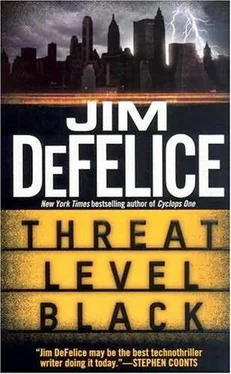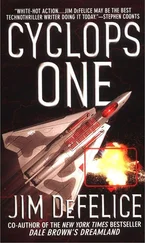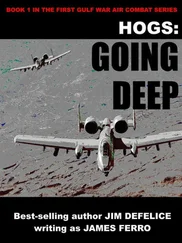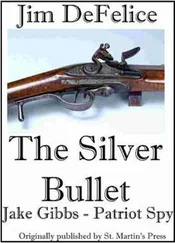“Spaghetti’s good,” said Fisher.
Mrs. DeGarmo made her way to a pantry at the end of the hallway in the back where she kept extra groceries. The groceries were on a small bookcase in the hall; the pantry itself was occupied strictly by grocery bags. If there was ever a shortage, she could supply the city for months.
“Look at that,” she said, pointing to the floor as she took the box of Ronzoni.
“What?”
“The rats are back,” she said.
“Rats?” asked Fisher. “Rodent rats?”
“They always come back. This time at least they stayed away for weeks.”
“Good exterminator’s hard to find,” said Fisher, helping himself to another cup of coffee as they returned to the kitchen.
“Faud knows how to chase them away,” said the landlady, checking on her large pot of water.
“Really?” said Fisher.
“Oh, yes. He was very good at that. He was a very good boy.”
“He put out traps?”
“No. Fumigate.”
“Fumigate?”
“Very stinky. We had to go outside the whole day. He sealed it off. Smelled like Clorox when he was done, but there were no rats.”
“Sealed what off?”
“Downstairs. Two times, he did it.”
“Two times?”
“He was a very good boy.”
“Mind if take a look?” asked Fisher.
“First you have something to eat. Then you fix the faucet,” said Mrs. DeGarmo. “Then you take a look.”
“Can’t argue with that,” said Fisher, twirling his spaghetti.
Howe was fifty miles from the coast when the radar warning receiver buzzed, picking up the two MiGs flying almost directly at him from the east at 25,000 feet. They were less than fifteen miles away, which would put them overhead in roughly sixty seconds. He pushed lower to the mountains, sliding down through 10,000 feet in hopes of avoiding their radar.
He thought he’d slid by when the RWR came up again; he’d strayed close to a ground radar. Howe held to his course anyway. There was another radar to the north closer to the coast, and maneuvering away from one would expose him to the other. The MiGs or at least their radars had disappeared.
Four minutes to the coast, then another five minutes before he’d be far enough away that nothing could stop him.
A flight of F/A-22s would be on station by now, off the coast to the south. If they scrambled north, they’d meet him over the coast, or just off it.
So, really, he only had to make it though four minutes. Two hundred and forty seconds.
Long seconds.
He got a blip: the MiGs.
Howe glanced down at the map he’d unfolded across his lap and leg. He could cut farther north and hope to avoid the MiGs by legging into Russian territory, but that would take him farther from the F/A-22s presumably scrambling to his aid. It also would stretch his fuel further and leave him vulnerable to the Russians, who surely would be interested in a plane that looked like one of theirs.
He looked up at the black night in front of his cockpit, calculating which way to push his luck. There was chatter on the frequencies used by the Korean air force.
“Ivan, be advised a second flight of MiGs scrambling from Orang to check unknown contact in your vicinity,” warned the mission coordinator in Sky. “We’re tracking them now. They’re going to be in your face in zero-two minutes. SAMs are coming up.”
“Ivan,” acknowledged Howe, his grip tightening on the sidestick.
“Another flight: You’re being targeted!”
The words were drowned out by the blare of the radar warning receiver, whose fervent bleat indicated that an air-to-air radar had just locked its grip on him.
The first bulletin took Blitz by surprise. He was actually staring at a feed from a U-2 flying near the Korean DMZ, and as the screen changed he didn’t immediately understand what he was seeing.
“They’re going to war!” exclaimed one of the officers standing nearby him in the situation room. “Oh, my God.”
Everyone around them jumped to their feet. The screens flashed. People started to shout.
Calmly, Blitz turned to his military aide. “Get the President on the line. Now.”
In the end the best they could do was push the wrecked vehicle into a ravine about fifty feet below the road. They took the two men they’d killed and carried them with them for a few miles before burying them in the rocks at a pass in the hills.
You screwed up, a voice told Tyler as he set out just ahead of the tailgunners. You gave the order too soon.
The muscles in his chest tightened; they felt like bands of steel clamping him together, slightly swelled like ice cramping against the sides of a hose. He concentrated on his job, on his situation, on his men, but still the muscles in his chest failed to relax.
They had to retrace part of their path, coming in on the route they had taken. Though risky by its nature-at least in theory someone who was trailing them would have the route covered-it had seemed the only way when they were laying out the plan back in D.C. Tyler had gone over it again before they kicked off; it was the only way to get across the mountains in that area while avoiding settlements and completely impassable terrain.
He second-guessed himself now, arguing that he should go a different way. Sweat poured from his neck as he walked, and by the time he finally reached the turnoff to the path beyond the pass, Tyler felt a wave of relief.
It was short-lived. They were just starting down the hill when the com system crackled with a warning: three vehicles approaching.
Silently the soldiers moved off the road.
“We can take them,” said Warrant Officer Chris Litchfield, who was fifty yards ahead on the other side of the road.
“No,” said Tyler.
Litchfield didn’t reply. The first of the trucks came into view. It was a large canvas-backed six-wheeler, probably older than its driver. The other two were close behind; none of the three trucks had their lights on.
Tyler watched through his night optical device, or NOD, as the trucks stopped. Men began piling out of the backs of all three. They were chattering. A dozen or so went to the side of the road, climbed down a short way.
It was a piss stop, nothing more. Just a stop so a few soldiers could relieve themselves midway through a long journey.
Of all the luck.
Tyler saw what would happen a few seconds before it did.
“Get the lead truck,” he managed to say before the first Korean shouted that there was someone on the hill.
The RWR screamed at Howe as he threw the Berkut into a hard turn, trying to beam the interceptor’s radar. It was too late; the Korean had launched a pair of radar-guided missiles at him.
The weapons were R-77 air-to-air missiles, known to NATO as AA-12 Adders and sometimes called AMRAAMSKIs. The Russian-made air-to-air missiles were roughly comparable to American AIM-120 AMRAAMs.
Howe hit his electronic countermeasures, or ECMs, jinking back hard and then pushing the plane through a mountain pass that loomed to his left. It was a good move: Not only did he lose the missiles but the MiG that had launched them continued on its course blithely, flying away from him. But Howe was in no position to gloat: He had two more MiGs coming hot and heavy in his face.
Had he been sitting in an F/A-22 or an F-15 Eagle, both aircraft would be dead meat: He’d punch-button the bastards to death with a pair of AMRAAMs without losing a breath. But he wasn’t. He had only the cannon and its 150 shells. And he had only one engine to work with.
Three minutes to the coast. One hundred and eighty seconds.
Читать дальше












